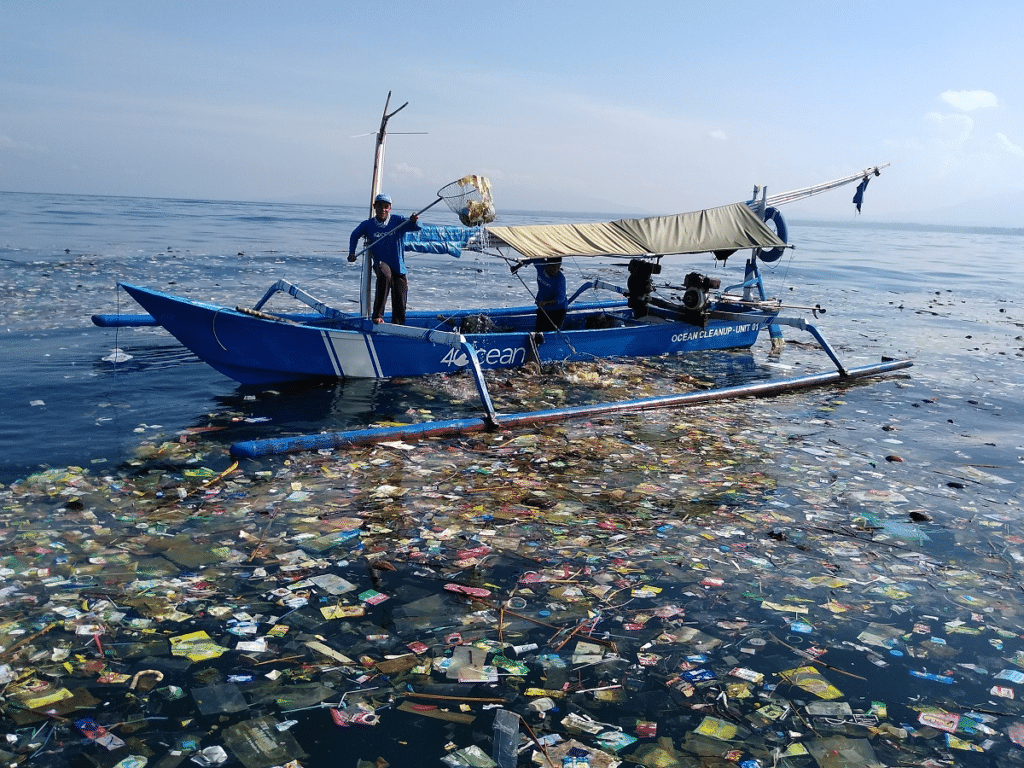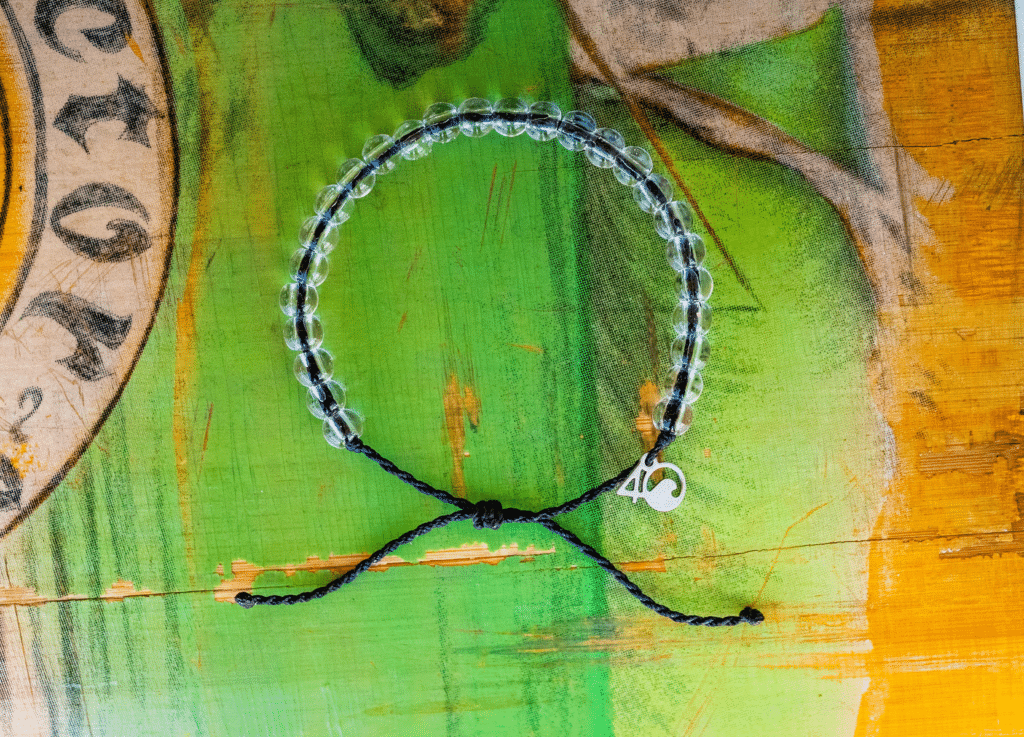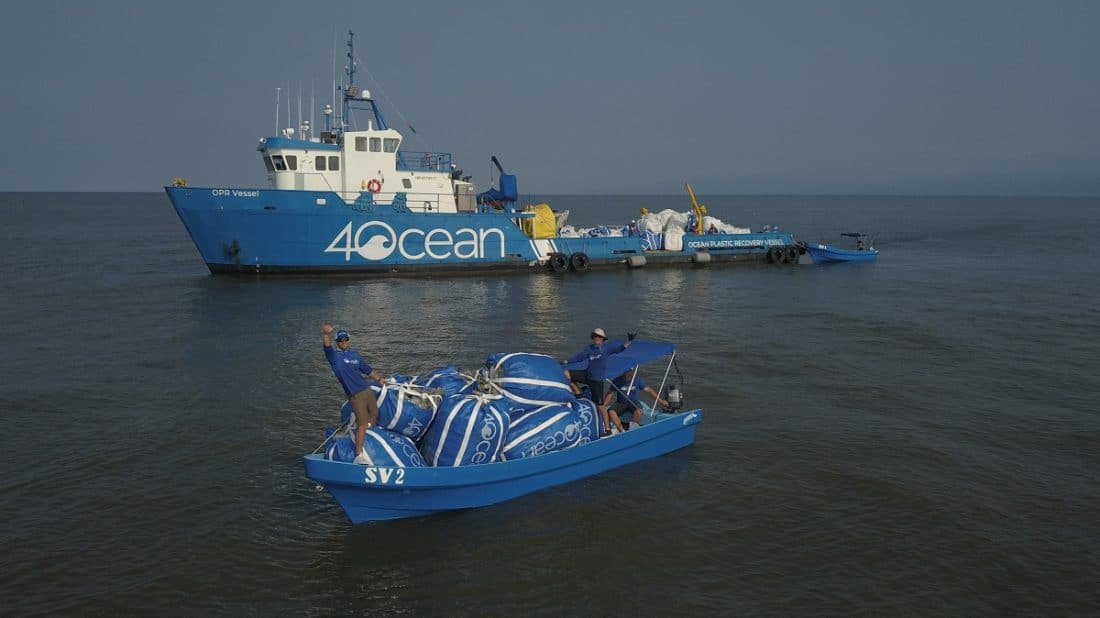4ocean’s digital leads share the inside scoop on building a purpose-before-profit company.
Between Thanksgiving and New Year’s Day, Americans will produce an extra 1 million tons of trash every single week, according to the Environmental Protection Agency.
That would be an additional 25 million tons of trash entering landfills and the ocean every holiday season, according to 4ocean, the company that uses the sale of its bracelets and other products to fund ocean cleanups. “If every U.S. family reused two feet of holiday ribbon this year, we’d save enough of it to tie a bow around the planet, just like the gift it is.”
Such is the helpful, eco-friendly tone in every communication from 4ocean. It was founded in January 2017 by Andrew Cooper and Alex Schulze, two surfers who found their life’s purpose after a trip to Bali.
Take Out the Trash
Aghast at the rampant pollution in this Indonesian province, they set out to find a solution: Their Boca Raton, Fla.-based for-profit company. For every product the 200-person company sells, it pulls at least one pound of trash from oceans, rivers and beaches. The process has been certified by the Better Business Bureau. Professional crews have pulled more than 11.6 million pounds of trash off the coasts of South Florida, Guatemala, Indonesia, and Haiti.
In 2019, Forbes named Cooper and Schulze to its 30 under 30 list of social entrepreneurs. Earlier this year, 4ocean became a Certified B Corporation, an international standard for companies committed to positive social and environmental impact.
But it’s Steve Lamb, the company’s head of global digital marketing, and Patrick Carney, director of customer experience, who steer the company’s communications ship. In an exclusive interview with Velocitize, Lamb and Carney explained their digital strategy for the holidays, shared tales of how the company has weathered the Covid-19 pandemic, and provided their unique perspective on how business can make the world better.
Know Your Customers
“Our end point is to rid the ocean of plastic, and we want to take the customers on our journey—not just highlight the wins, but the process of doing that,” Carney says. “It’s an arduous process, and we want to invite them into it. When you come on board with 4ocean you’re becoming part of that mission.”

4ocean’s customers are a global group of ecologically aware individuals. While most of them are in the U.S., its English-only website sells to people in 185 countries. Canada, the U.K., Australia, Germany, and Italy are also big markets.
The company has created a robust profile of its eco-friendly customers from several data sources. Its YouTube channel has 101,000 subscribers, and nearly 3.6 million views for the B Corp video announcement; its Facebook page has nearly 1.3 million followers. They use Google Analytics, which provides demographic information on people visiting the corporate site.
In addition to caring about the ocean and sustainability, their typical customers love gardening and pets, especially dogs. They represent basically every age range, with the bulk of them between the ages of 35 and 65. Women make up 70% of the customer base.
“Another one is news channels,” Lamb says of his customers’ lifestyle preferences. “People that like to watch the news like 4ocean.” That makes sense. People who care about the environment and climate change tend to be informed.
Target the Consumer

Indeed, a 4ocean ad appeared next to election news in The Guardian recently. The author of this article had been visiting 4ocean.com to conduct research. The company started advertising to her online, a process called retargeting. An ad featuring several variations of the company’s plastic bracelets—the most popular product—ran in the middle of a story.
The company’s paid advertising strategy is sound, according to new research by the Interactive Advertising Bureau.
In an interview for Velocitize’s Election Day coverage, Sue Hogan, the IAB’s SVP of research and analytics, said: “News consumers think that brand advertising adjacent to even unsettling and sensitive news has a positive impact on perception of a brand’s trustworthiness. Rather than shying away from advertising, brands that embrace the news could benefit greatly from association.”
Happy Eco-Friendly Holiday

For this holiday season, 4ocean has unveiled face masks made of organic cotton; a limited edition bracelet co-marketed with Below Deck, the reality show now in its eighth season on Bravo; and its first iPhone case, made from plastic pulled off the coast of Haiti.
In a November 13 email announcing the new case, the company explained its commitment to a “closed-loop manufacturing process” that uses the ocean as part of its supply chain to create new products. The goal is to “end the world’s reliance on single-use plastic.”
Indeed, such correspondence—a mix of education, passion and transaction —is a major part of the company’s multimedia marketing strategy. While the near-famous TV commercial of the company’s bare-chested founders walking along the Bali coast helps to raise brand awareness, digital channels engage people who are more ready to buy.
“Quiet Activism”
4ocean employs a wide array of communications strategies: Digital radio, TV, social media, banner ads, paid search, email, and text. “We pretty much do everything under the sun to drive awareness of what we do and stay connected to people who already know what we do,” Lamb says.
Tony Sgro, a hair stylist at Olivier Salon in Fort Lauderdale, is one such person. He was motivated to research the company after seeing the ad featuring “two attractive surfers” talking about the amount of plastic in the ocean. He went to their website and purchased two bracelets. Wearing the bracelet is a “quiet way of activism,” he says.
We Saw You Checking Us Out
When the Covid-19 pandemic hit, Lamb and Carney decided to pull away from the more expensive channels, TV and YouTube.
They increased the frequency of their emails from one or two times a week to five or six times a week. After the writer of this article left the site without buying anything, the company labeled her an “abandoned browser” and sent her an email titled, “We saw you checking us out.”
“We want to be as personalized as possible,” Lamb says. “[There are] different stages of triggered emails that go out to the customer based on their point in the journey. We wanted to encourage you to come back to the site and continue the journey, and remind you that every product purchased pulls a pound of trash from the ocean to really drive home the message.”
To be authentic at 4ocean is to be fun and lighthearted. Copy writers, for example, get to use the word “stoked” to convey the company’s B Corp accomplishment.
“We try to keep it casual and engaging,” Carney says. “We are an ocean company founded by a couple of surfers who love being on the water. And we all do, too. We want that to come through in the messaging.”
Think Positive

In recent months, 4ocean’s marketers assessed that their customers needed messages of hope.
Digital communications provided reminders that professional crews—following safety guidelines—were still working to pull trash from the oceans. They also continued to operate the company’s recycling facilities.
“[During quarantine] people wanted to feel like they were making a difference doing something, and that helped our online business a little bit,” Lamb says. “Once people started getting government relief checks, they were ready to spend some money to make a difference in the world.”
Lamb, who lives in Fort Myers, Fla., says a science lesson at his daughter’s school introduced him to 4ocean. When she was in the seventh grade, she came home wearing a 4ocean bracelet, a gift from her teacher.
Cleanup Time
Now that he’s part of the company, he and his team are building The Clean Ocean Club. The subscription plan will accelerate ocean cleanups and fund educational programs in the U.S. and abroad. Say you’re a subscriber and you buy the bracelet of the month. Your $20 will pull two pounds of trash from the ocean. It’s a feat made possible by cleanup processes that are growing ever more efficient.
Through the eco-friendly Pound+ program, you can buy ocean cleanup as a service, without buying a tangible product. It’s a way to pay 4ocean to keep working “to pull pounds,” as they call it, when you don’t need more stuff.
“We do good in the world, and we do it well,” Carney says. “It’s an economy around the ocean.”
All photos courtesy of 4ocean





Join the conversation